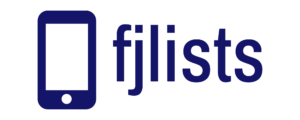In today’s digital age, competition for qualified leads is fierce. Businesses are constantly seeking innovative ways to attract potential customers. Enter web scraping – a technique that extracts data from websites – which, when used ethically and strategically, can be a powerful tool for lead generation. This comprehensive guide explores the potential of web scraping for lead generation, emphasizing ethical considerations and outlining best practices to harvest valuable data without compromising trust or breaching legalities.
Web Scraping for Lead Generation: A Double-Edged Sword
Web scraping allows businesses to extract valuable data from websites, including:
- Contact Information: Email addresses, phone numbers, and social media profiles of potential customers listed on business directories or industry event pages.
- Industry Data: Market trends, competitor analysis, and customer insights gleaned from industry reports or news articles.
- Job Listings: Extracting contact details from job boards to target potential candidates for B2B sales or recruitment.
However, web scraping can be business contacts at hawaiiana management company ltd a double-edged sword. Unethical scraping practices can overload servers, violate website terms of service (TOS), and even be illegal depending on the data targeted and the methods used.
Ethical Considerations for Lead Generation Through Web Scraping
Here’s how to ensure your web scraping practices are ethical and compliant:
- Respect Robots.txt: Every website has a robots.txt file outlining scraping guidelines. Always adhere to these guidelines to avoid overloading the server or violating website policies.
- Focus on Public Data: Target publicly available information on websites. Avoid scraping login-protected areas or private user data.
- Scrape Responsibly: Implement scraping practices that minimize impact on website performance. Utilize scraping tools with functionalities like delay timers to avoid overloading servers.
- Prioritize Data Quality: Ensure the accuracy and validity of scraped data. Regularly clean and verify extracted information before using it for lead generation efforts.
- Transparency and User Consent: If scraping involves collecting personal data, clearly state your practices in your privacy policy and obtain user consent before using their information.
Best Practices for Lead Generation Through Web Scraping
Here’s how to optimize your ethical web scraping strategy for lead generation:
- Identify Data Sources: Research industry directories, business listing websites, and relevant online publications that might house valuable lead data aligned with your ideal customer profile (ICP).
- Choose the Right Tools: Several ethical web scraping tools are available, offering functionalities like data extraction, filtering, and export options. Choose a tool that aligns with your technical expertise and scraping needs.
- Respect Rate Limits: Many websites impose rate limits on scraping bots. Implement scraping tools with rate limiting functionalities to avoid overloading servers and getting blocked.
- Data Hygiene and Compliance: Regularly clean and verify scraped data to ensure accuracy. Ensure compliance with data privacy regulations like GDPR (General Data Protection Regulation) when applicable.
- Focus on Value Addition: Don’t just collect data – leverage it to provide value. Use scraped data to personalize marketing campaigns, identify industry trends, or tailor content to address specific customer needs.
Beyond Scraping: Building a Sustainable Lead Generation Strategy
Remember, web scraping is just one piece of the lead generation puzzle. Here’s how to create a holistic strategy:
- Content Marketing: Develop valuable content that attracts potential customers organically, establishing your brand as a thought leader and a trusted resource.
- SEO Optimization: Optimize UNVEILING THE MEANING AND LEGACY your website and content for relevant keywords to improve search engine ranking and attract organic website traffic with genuine interest in your offerings.
- Social Media Engagement: Actively engage with potential customers on social media platforms, participate in industry discussions, and showcase your expertise to build brand awareness.
- Lead Nurturing: Once you capture leads, nurture them with valuable content, personalized communication, and a focus on addressing their specific needs throughout the buyer’s journey.
Conclusion: Ethical Scraping – A Tool for Growth, Not Intrusion
Web scraping can be a powerful tool for generating leads, but it’s crucial to use it ethically and responsibly. By prioritizing data quality, respecting website guidelines, and focusing on providing value, you can leverage web scraping to enhance your lead generation strategy without compromising trust or breaching legalities. Remember, ethical web scraping is about harvesting valuable data, not intruding on online spaces. When used strategically and compliantly, web scraping can be a valuable tool in your B2B lead generation arsenal.



